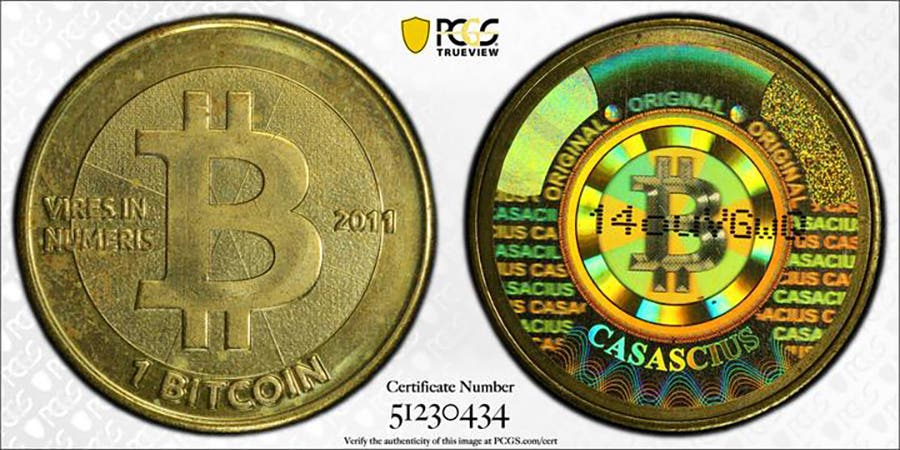Sound Money – The Moral and Economic Case
At last week’s New Orleans Investment Conference, Lawrence Lepard delivered a speech titled “Fix The Money, Fix The World.” His presentation provides a foundational explanation of why sound money is…
At last week’s New Orleans Investment Conference, Lawrence Lepard delivered a speech titled “Fix The Money, Fix The World.” His presentation provides a foundational explanation of why sound money is so important on both an economic and a moral basis.
Lepard’s speech is just one of the latest explanations of why a stable, sound monetary system is so important to the U.S. and world economy. The 2014 book Money: How the Destruction of the Dollar Threatens the Global Economy – and What We Can Do About It, authored by Steve Forbes and Elizabeth Ames, is a more comprehensive discussion of the subject.
As Lepard explains, “Prices are the most important piece of information in a human society ... the interest rate is the price of money which helps to balance time preferences, matching savers with investment projects. One cannot overstate the importance of the following concept: capital accumulation and private savings are what lead to investments which improve our productivity and living standards.”
Prices are only meaningful if set by the un-manipulated free market. Prices have a maximum utility if they are quoted in a stable, sound currency, whose value remains constant.
When governments inflate the money supply, that inevitably harms the purchasing power of each monetary unit. It no longer protects the property held by people and the private sector. Instead, it becomes a means by which governments steal from people who save. This has the effect of discouraging savings, which are the ultimate source of capital for investments to improve the economy and people’s standard of living.
Later in his speech, Lepard said, “Sound money is truth, in an absolute sense. Simply defining truth as an accurate portrayal of reality, prices are the truth about what market actors want in respect to what capital is available.”
Not only is sound money truth, it also provides freedom. The best way to understand this is to review the history of what has happened in nations that suffered hyperinflation – Germany and Hungary after World War I, Zimbabwe earlier this century and Venezuela today. When the purchasing power of a fiat (paper) currency falls rapidly, the availability of goods and services plummets.
It wasn’t until after Zimbabwe’s currency collapsed in January 2009 that the government allowed its citizens to trade in any form of money they wanted. Quickly, the more stable currencies of the U.S. dollar, euro and South Africa rand circulated in that country to fill the void. When Zimbabwe merchants were able to pay for products in currencies that the sellers were willing to accept, they were able to put inventory on the shelves for customers to purchase. Within a year of the collapse of the Zimbabwe dollar in January 2009, relative prosperity in that nation soared (though still well below the world average).
The people in Venezuela today are literally suffering because of that nation’s hyperinflation. Many have starved to death, unable to obtain enough food to survive. Of those alive in Venezuela today, the average weight of a resident has declined by more than 20 pounds over the past few years.
Unfortunately, when governments inflate the money supply, sound money is not possible. Instead, these fiat currencies are destined to collapse. Over the entire history of unbacked paper money, the mean lifetime from first issue to failure is 40 years, which the median lifespan is just 25 years. As this happens, it is the everyday citizens who suffer. Invariably, those who possessed physical gold and silver have fared better than those who do not.
Patrick A. Heller was honored as a 2019 FUN Numismatic Ambassador. He is also the recipient of the American Numismatic Association 2018 Glenn Smedley Memorial Service Award, 2017 Exemplary Service Award, 2012 Harry Forman National Dealer of the Year Award and 2008 Presidential Award. Over the years, he has also been honored by the Numismatic Literary Guild (including twice in 2020), Professional Numismatists Guild, Industry Council for Tangible Assets and the Michigan State Numismatic Society. He is the communications officer of Liberty Coin Service in Lansing, Mich., and writes Liberty’s Outlook, a monthly newsletter on rare coins and precious metals subjects. Past newsletter issues can be viewed at www.libertycoinservice.com. Some of his radio commentaries titled “Things You ‘Know’ That Just Aren’t So, And Important News You Need To Know” can be heard at 8:45 a.m. Wednesday and Friday mornings on 1320-AM WILS in Lansing (which streams live and becomes part of the audio archives posted at www.1320wils.com).








